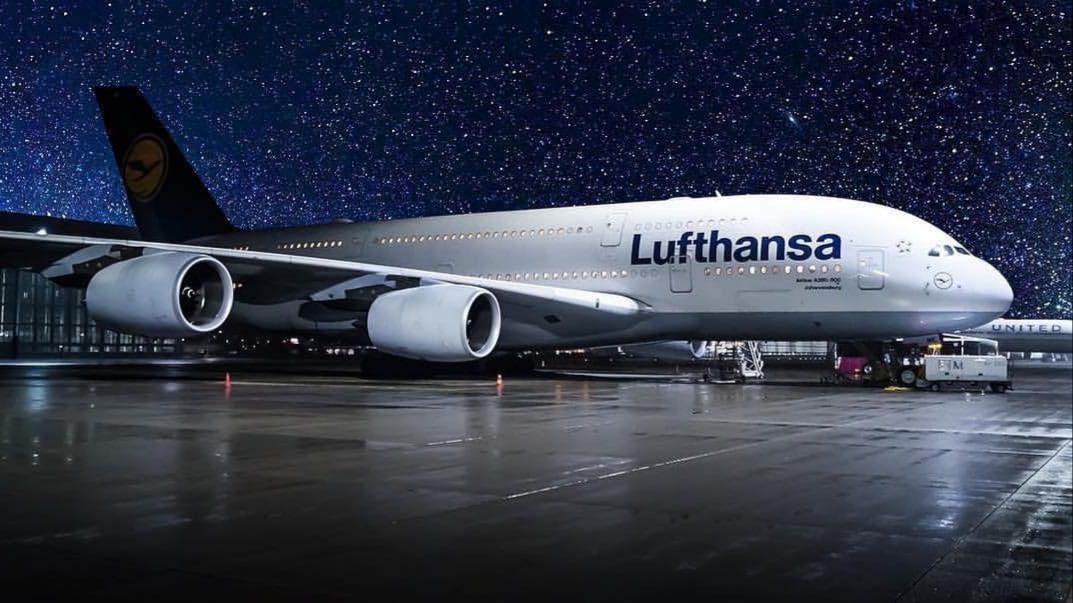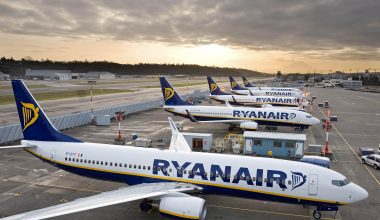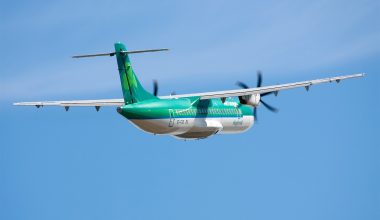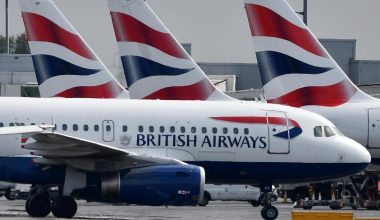The adverse effect of the Covid pandemic on the aviation industry has made a lot of airlines to re-consider their fleet size and the aircraft they operate. The low air travel demand and huge wide-bodied vessels have become a nemesis in the present circumstances. Similarly, the Cologne, Germany-based airline, Lufthansa, reaffirmed that the Airbus A380 is not returning to the airlines.

The Chief Executive Officer of Lufthansa, Carste Spohr, reaffirmed that the Airbus aircraft wouldn’t be joining the airline’s fleet on 4th August 2021. The world’s largest passenger aircraft didn’t seem to fit in with the major modernization plans the German airlines had sketched to revolutionize themselves amidst the crisis. The status of the big aircraft was already in question before the pandemic, but with the outbreak of the Covid pandemic and the toll it took on the air travel, the decision might have been inevitable.
Also Read: When did Emirates last flew its Airbus A380 to Australia?
Definitely Not Coming Back
Lufthansa’s CEO, Spohr, made it quite clear that the possibility of the aircraft’s variant joining the airline’s fleet in the near future is not possible. Sophr stated that the aircraft type is dead as far as he is concerned; speaking at the airline’s Q2 result call in August 2021, he shared the airline’s fleet plan to take away nine sub fleets over the next years with no possibility of a comeback for the large vessel. The airline plans to bring back the A340-600 variants only for two years to determine the airline’s capacity in Munich, including the premium cabin, until it gets replaced by the A350s.

At present, Lufthansa has a total of 667 aircraft in its fleet, the largest portion covered by aircraft from the Airbus family. The airline has 221 of the Airbus A320s, 90 of the Airbus A321s, 89 of the Airbus A319s, 42 of the Airbus A330s, 31 of the Airbus A340s, 30 of the Airbus A220s, and 17 of the Airbus A3550 XWBs. Similarly, Lufthansa’s fleet consists of 27 Boeing 777s, 4 Boeing 767s, and 2 Boeing 737s. Prior to the retirement of the A380s, the German airlines operated 14 of Airbus’s big aircraft.
As of now, the airlines has already sent most of its A380 aircraft to long-term storage and sold 6 of the Airbus A380 variants in 2019, stating that operating them was unprofitable.
Why Is Airbus A380 Phasing Out?
The largest airliner was retired after just 12 years of service; Airbus will halt its production process from 2021 after 12 years of service. The technological marvel was definitely loved and adored by its passengers for its premium services and comfort on the vast, spacious cabins; however, the four-engined aircraft in the aviation industry run by the two-engined aircraft was not economically healthy for the airlines.

The unique passenger experience aircraft introduced a new standard of in-flight comfort from its first-class cabin to economy. The aircraft could carry 550 passengers and luxurious 800 seating on maximum configuration, but the significant seating capability also introduced the aircraft to trouble; the more unfilled seats on a flight directly proportionate to the more loss per flight. The low number of planes sold was the major cause behind Airbus shutting down the big aircraft variant; the Airbus family was building the A380s faster than the people were ordering.
One of the biggest airlines, Emirates Airlines, which is known for making significant investments in planes, had placed an order of 162 Airbus A380s. Still, eventually, the Emirates also decided to cut the order by 39 aircraft. The Emirates move to cancel 39 of the big carriers became the final nail to shut the A380 variant. Ironically, the Emirates have been a really great hit with the A380s, more successful than anyone else with the variants.
After the announcement to cancel the 39 A380s from Airbus, Emirates also announced that it would purchase 40 smaller variants from the family A330-900 and 30 of the A350-900, deliveries initiating from 2021.





